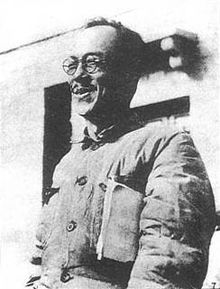Kang Sheng
Kang Sheng was a Communist Party of China official best known for having overseen the work of the CPCs internal security and intelligence apparatus during the early 1940s and again at the height of the Cultural Revolution in the late 1960s and early 1970s. A member of the CPC from the early 1920s, he spent time in Moscow during the early 1930s, where he learned the methods of the NKVD and became a supporter of Wang Ming for leadership of the CPC. After returning to China in the late 1930s, Kang Sheng switched his allegiance to Mao Zedong and became a close associate of Mao during the AntiJapanese War, the Chinese Civil War and after. He remained at or near the pinnacle of power in the Peoples Republic of China from its establishment in 1949 until his death in 1975. After the death of Mao and the subsequent arrest of the Gang of Four, Kang Sheng was accused of sharing responsibility with the Gang for the excesses of the Cultural Revolution and in 1980 he was expelled posthumously from
Kang Sheng was born in Dataizhuang , Zhucheng County to the northwest of Qingdao in Shandong Province to a landowning family, some of whom had been Confucian scholars. Kang was born Zhang Zongke but he adopted a number of pseudonyms most notably Zhao Rong, but also Li Jushibefore settling on Kang Sheng in the 1930s. Some sources give his year of birth as being as early as 1893, but it has also been variously given as 1898, 1899 and 1903.
Source: Wikipedia

